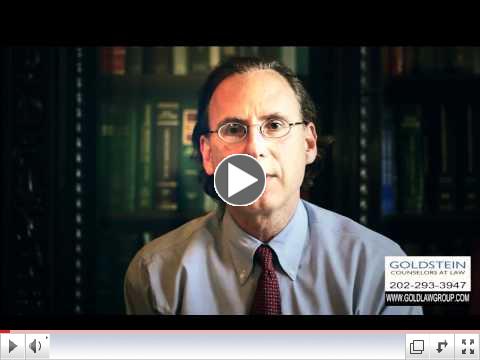|

 | |
Jeff Goldstein GOLDSTEIN LAW GROUP Nat'l Franchise Law
|
 | |
Franchise Discrimination - Video 1 of 2
|
 | |
Franchise Discrimination - Video 2 of 2
|
 | |
Franchise Law: Fraud and Good Faith in Franchise Law
|
 | |
Franchise Law -- Franchisees' Franchise Termination Damages
|
|
|
EVEN GREEK SUBWAY FRANCHISEES ARE NOT IMMUNE FROM TERMINATION
| Subway International B.V. v. Panayota Bletas. (United States District Court, D. Connecticut) - After winning an Arbitration Award against a Greek Franchisee, Subway filed suit in Connecticut to confirm the Final Award of the Arbitrator.
The Greek Franchisee asserted three grounds for why the court should not confirm the arbitration award: (1) fraud and perjury; (2) that it violated public policy and the terms of the parties' agreement; and (3) that it was barred by the doctrine of res judicata. The Court rejected every one of the Greek Franchisee's arguments.
With regard to the fraud and perjury claim of the Greek Franchisee, it argued that one of the Subway witnesses committed perjury by incorrectly stating that Subway franchisees in Greece paid 4.5 percent of gross sales in advertising fees instead of 3.5 percent. In rejecting the argument, the Court ruled that the veracity of Subway's trial witness was an issue that should have been raised during the arbitration proceeding and therefore could not serve as a grounds to vacate the arbitration award.
The Greek Franchisee's second argument was that the arbitration award should not be confirmed because it claimed that one of the Subway attorneys committed perjury and fraud upon the court by improperly serving Subway's legal service of process on the wrong person. However, the Court ruled that the Greek Franchisee had forfeited its personal jurisdiction defense arising from improper service of process by participating in a settlement conference.
Last, the Subway Franchisee argued that upholding the arbitration award would violate public policy because it would require that the Greek Franchisee pay the Arbitration Award to Subway without withholding the appropriate tax payments. Subway conceded that the Court had the power to set aside an arbitration award that violated public policy, but it contended that there was no such violation because the award was merely silent as to the issue of taxes and did not require the non-payment of taxes on the award.
|
|
JACKSON HEWITT FRANCHISEE'S HUSBAND SNAGGED BY HIS WIFE'S POST-TERM NON-COMPETE COVENANT
| Jackson Hewitt Inc. v. H.E.A.T. Enterprises, LLC. (United States District Court, New Jersey) - This case arose out of Jackson Hewitt's suit to show cause as to why Fournier, the husband of the owner of one of its former franchisees, should not be bound personally by the Injunction issued against that former franchisee, H.E.A.T. Enterprises. Fournier argued that he was not named in the Injunction moving papers and that he never owned H.E.A.T nor was material to its operation.
Originally, the Federal District Court entered an injunction against H.E.A.T. prohibiting it and its owner, after termination, from engaging in tax preparation services within the former H.E .A.T. franchise territory, and requiring them to comply with the franchise agreement's post-termination requirements. Jackson Hewitt subsequently brought a motion for an order to show cause why Fournier, the husband of the owner of the franchise, should not be bound by the Injunction enforcing the post-term covenant not to compete.
Before explaining why it would hold Fournier as personally subject to the Injunction and to the post-term non-compete covenant, the Court explicitly stated that it had always treated Fournier and his wife as separate individuals and therefore did not impute the acts of one onto the other. In other words, the Court treated Fournier's status as the franchisee owner's husband as irrelevant. Similarly, the Court accepted that Fournier was not an owner of H.E.A.T. and did not base its decision on that.
Instead, the Court found Fournier subject to the post-compete covenant because it found that Fournier was in active concert or participation with H.E.A.T. and that he actively participated in the operation of H.E.A.T. Fournier argued that if he were bound by the H.E.A.T. Injunction the Court would be improperly enjoining him from performing tax preparation services anywhere in the country where Jackson Hewitt had a territory. The Court replied that it was not ruling that he was subject to an Injunction at the national level or that Fournier be enjoined from conducting tax preparation services in any location in which he may be competing with Plaintiff.
The Court explained that it was simply applying the federal rule regarding Injunctions that an injunction binds "persons who are in active concert or participation" with an enjoined party provided such individuals "receive actual notice of the injunction.
The Court found that there was no question that Fournier had notice of the H.E.A .T. Injunction, and, based on the evidence presented, that Fournier attempted to evade that Injunction by continuing tax preparation services within the H.E.A.T. territory, albeit under a new name. According to the Court, Fournier was active in H.E.A.T.'s operations prior to the Injunction, and he continued his involvement after the Injunction. The Court concluded that "to allow Fournier to continue on with the H.E.A.T. business, and thereby evade the Injunction, simply because H.E.A.T. is now operating under a different name would fly in the face of equity and fairness."
|
 | | Complimentary Legal Consultation
Initial Complimentary Consultation Available. Please click the link to our website below and fill out the questionnaire. We will respond to you within one business day to schedule a conference call to discuss your concerns. Please use the provided space to explain your issue or concern.
|  |
|
|
GOLDSTEIN LAW GROUP, PC
JEFFREY M. GOLDSTEIN, ESQ.
www.goldlawgroup.com
202-293-3947
|
|
A BATTLE AMONG COURTS, LEGAL STANDARDS, DEFINITIONS AND GRAMMAR: IS THE WORD "NONE" THE SAME AS THE WORD "SOME" IN TOYOTA DEALERSHIP AGREEMENT?
Brett Bray v. Tejas Toyota, Inc., (Court of Appeals of Texas, Austin) - Gulf States was a licensed Toyota distributor, and Tejas had been a Toyota dealer and Gulf States Toyota franchisee since 1975. Gulf States Toyota's business model was based on two-year franchise agreements with its dealers -- when the old franchise agreements had expired, Gulf States would offer a new ones. The dispute in this case arose when Gulf States Toyota offered Tejas a replacement franchise agreement, which renewed the agreement for an additional two years on identical terms. Instead of executing the replacement franchise agreement, Tejas challenged the new franchise agreement as unfair and unlawful under the Texas State Auto Dealer Statute.
Interestingly, the Texas Auto Statute prohibited a distributor from modifying or replacing an existing franchise "if the modification or replacement would adversely affect to a substantial degree the dealer's sales, investment, or obligations to provide service to the public, unless" two conditions are met: (1) appropriate notice is given, and (2) any protest is resolved in favor of the modification or replacement. Although there was no dispute that the contested provisions of the old dealership agreement were substantively identical to the provisions in the previous franchise agreement, Tejas nevertheless asserted that, due to changed circumstances, the challenged new franchise agreement would adversely affect to a substantial degree its sales, investment, or obligations to provide service to the public. Under the statute, the burden would then shift to the franchisor who would then need to show "good cause" for the replacement provisions.
The administrative law judge (ALJ) initially rejected Tejas's claim that Gulf States violated the statutory duty of "good faith and fair dealing" on the ground that there was insufficient evidence that Gulf States engaged in "conscious doing of a wrong for a dishonest, discriminatory or malicious purpose." The ALJ also determined that Gulf States had violated the notice provision.
The Division adopted the ALJ's recommendation regarding disposition of the good faith and fair dealing claim, but concluded that Gulf States did not violate the notice requirement because there was no substantive variance in the terms governing the franchise relationship and thus no substantial adverse effect as a matter of law. The Division, therefore, did not consider whether there was good cause for replacing the prior franchise agreement with the proposed agreement.
After exhausting its administrative remedies, Tejas filed a suit for judicial review contesting the Division's resolution of both the notice claim and the good faith and fair dealing claim. The trial court, however, ruled only on the statutory notice provision, and not the "good faith" issue.
Gulf States Toyota then appealed the trial court's ruling reasserting that there must be an "actual change" between the existing franchise agreement and the replacement franchise agreement in order for the statutory provisions to apply and that the trial court erred in concluding otherwise. In a cross-appeal, Tejas complained that the trial court "neglected" to rule on its point of error complaining that the Division evaluated its good faith and fair dealing claim under an erroneous legal standard.
The Court of Appeal first stated that it was undisputed that the case involved a replacement franchise agreement and not a modification to a franchise agreement, and that there was no substantive difference between the prior franchise agreement and the replacement agreement. It was also undisputed, stated the Court, that Toyota Gulf States did not give the statutory notice.
The trial court concluded that notice is required every time a franchise is replaced regardless of whether there is a change and, upon protest, requires a hearing to determine whether there is a substantial adverse effect and whether the distributor has good cause to modify or replace the franchise agreement. This construction of the statute, however, gives no effect to the statute's grammatical structure and renders meaningless the condition stated in the dependent "if" clause.
The Court reasoned that Gulf States Toyota could take the same actions permissible under the replacement agreement that it could take under the prior franchise agreement, and those actions were subject to the same statutory limitations. From the Court's point of view Tejas was in no different position by virtue of the replacement agreement. Accordingly, the Court ruled that, as a matter of law, the act of replacing the franchise does not itself create any adverse effect on the dealer.
Although Tejas repeatedly stresses the distinction between a modification and a replacement-one being partial and the other being total-the statute does not distinguish between the two in its application. And under the trial court's and ALJ's construction of the statute, every minor change constituting a modification would require notice and a possible hearing. We do not believe this is what the legislature intended. Indeed, such a construction could invite just as much mischief on the other side of the relationship as well as waste the administrative agency's time and resources on changes that are substantively insignificant.
The Court concluded that, "because there is no substantive difference between the existing franchise agreement and the replacement agreement, we hold that as a matter of law the replacement agreement does not substantially adversely affect Tejas and that Gulf States therefore did not violate the Texas Auto Dealership Statute."
|
COURT'S BLUE-PENCIL STRIKES 100-MILE RULE IN FRANCHISOR'S POST-TERM COVENANT NOT TO COMPETE
Outdoor Lighting Perspectives Franchising, Inc., V. Home Amenities, Inc., (United States District Court, W.D. North Carolina) - In this case, the court ruled in favor of the franchisor on its Motion for Preliminary Injunction to enjoin the franchisee's violation of a covenant not to compete after the franchise agreement had expired. OLP was a franchisor of outdoor lighting businesses under the trademark "Outdoor Lighting Perspectives." Home Amenities, Inc. ("HAI") was a Louisiana corporation owned by Tim and Janice Charrier ("the Charriers"), and Charrier Lighting Solutions, Inc. was an entity owned and operated by the Charriers. Shortly after expiration of the Charriers' Franchise Agreement, OLP learned that the Charriers were continuing to perform outdoor lighting sales and services as "Charrier Lighting Solutions."
The noncompete provision in the Franchise Agreement stated as follows:
14.2 The Franchisee covenants and agrees that: (f) Upon termination or expiration of the Term or any renewal Terms, or the transfer, sale or assignment of this Agreement by the Franchisee neither the Franchisee, the operating manager or the Franchisee's owners will have any direct or indirect interest (i.e., through a relative) as a disclosed or beneficial owner, investor, partner, director, officer, employee, consultant, representative or agent, for 2 years, in any Competitive Business within 100 miles of the Territory or any other franchisee's territory.
Further, the Franchise Agreement contained the following definitions:
"Competitive Business" was defined as "... any business operating in competition with an outdoor lighting business or any business similar to the Business" ("Competitive Business"). "Business" was defined as "the business operations conducted or to be conducted by the Franchisee consisting of outdoor lighting design and installation services, using the Franchisor's System and in association therewith the Marks."
The Court observed that for the past ten years, the Charriers used the "Outdoor Lighting Perspectives" Mark and OLP Business System to establish customer goodwill in the New Orleans market. The Court then went on to set out a very traditional analysis of non-compete covenants by stating that a franchisor's goodwill and reputation would be damaged if a terminated franchisee continued to operate a directly-competitive business in the same location (or market) under a different name. Under the Court's analysis, absent enforcement of the covenant, OLP would be unable to reenter the market serviced by the Charriers' former OLP franchise and would, accordingly, lose the sales, goodwill and market presence it enjoyed in those areas for over ten years. Specifically, it would be very difficult for OLP to place a new franchisee in the Charriers' former territory while the franchisees continued to operate "Charrier Lighting Solutions," a competing business in the same territory.
Finally, with respect to the justifications for the post-term covenant, the Court concluded that OLP also had a legitimate interest in preserving the integrity of its franchise system. If its non-compete provisions were not enforced, the Court concluded that the "entire OLP franchise system would be placed in jeopardy as franchisees would ignore their agreements and begin operating as a competing business knowing that the noncompete provisions would be disregarded and would provide no protection to other franchisees."
The Court also scrutinized the reasonableness of the term of the covenant not to compete; the covenant ran for a two year term. According to the Court, that was well within the range that the North Carolina courts had deemed reasonable. Notably, however, with respect to the geographic scope, the Court found that the 100-mile buffer around the franchisee's territory was not necessary to protect OLP's legitimate business interests.
The Court stated that it had the power to "blue pencil" the non-compete agreement by striking distinctly separable parts of the covenant in order to render the remainder of the non-compete provision reasonable. The Court then concluded that the terms of the non-compete provision were severable and the Franchise Agreement specifically stated that the Court "may modify Section 14 .2 to the extent it deems necessary to make such a provision enforceable under applicable law." The Court then blue-penciled the words "100 miles of" in paragraph 14.2 so that it was limited to protecting OLP's legitimate business interests by restricting the franchisees' activities within their territory and the territories of other operating OLP franchisees.
|
FRANCHISEE RULED TO HAVE BREACHED ITS FRANCHISE AGREEMENT BY MERELY SUING ITS FRANCHISOR
Sioux Falls Pizza Company, Inc. V. Little Caesar Enterprises, Inc. (United States District Court, South Dakota) - Plaintiff Sioux Falls Pizza Company, Inc. ("Sioux Falls Pizza") sued Defendant Little Caesar Enterprises, Inc. ("Little Caesar") after Little Caesar gave notice that it deemed Sioux Falls Pizza not to have the right to renew its agreements to operate Little Caesar franchises beyond the date that the expiration of the franchise agreement. Before the filing of this lawsuit, Sioux Falls Pizza had reached an agreement to sell its business for $700,000.00 to a third party, subject to Little Caesar's approval of the sale and renewal of franchises for the prospective new owner. Little Caesar declined to approve the sale, and the buyer backed out.
In the early 1990s, Little Caesar and Sioux Falls Pizza had entered into three separate franchise agreements, each of which had identical terms material to the issues in this case. The franchise agreements expired by their terms on May 31, 2011, but allowed Sioux Falls Pizza the right to renew them for an additional ten years if certain conditions existed. The language in the initial franchise agreements signed by Little Caesar and Sioux Falls Pizza allowed for automatic renewal if, the Franchise Owner was not in default, and had never been in substantial default of any provisions of the Agreement, or any amendment hereof or successor hereto, and Franchise Owner was not in arrears with respect to any indebtedness incurred in connection with its business.
However, in 1999, certain Little Caesar franchisees-not including Sioux Falls Pizza-brought suit against Little Caesar in Texas state court and the Texas state court certified the Hotchkiss Litigation as a class action of Little Caesar franchisees. The language contained in the Hotchkiss Settlement Agreement revised the standard franchise terms that were different from terms in franchise agreements between Sioux Falls Pizza and Little Caesar. Both Sioux Falls Pizza and Little Caesar agreed that the Hotchkiss Settlement Agreement was intended to make changes to the franchise agreement favorable to franchisees. Both Little Caesar and Sioux Falls Pizza acknowledged that the Hotchkiss Settlement Agreement was not designed to make non-renewal of franchise agreements easier for Little Caesar to accomplish.
Further, Sioux Falls Pizza-then known as Pinnacle-sued Little Caesar on October 25, 2004, in a lawsuit unconnected to the Hotchkiss Litigation. The parties called the case the "Hot-N-Ready" litigation. Sioux Falls Pizza, after exposure to Little Caesar marketing ideas and in an effort to expand its business, used the phrase "Hot-N-Ready" to advertise pizza being ready for pickup at its Little Caesar stores in Sioux Falls at a reduced rate on certain days. This marketing strategy proved successful in generating more business for Sioux Falls Pizza. Based at least in part on the success in Sioux Falls of the "Hot-N-Ready" concept, the concept and use of the phrase "Hot-N-Ready" spread throughout Little Caesar franchise system. Little Caesar provided its franchises with advertising material and registered the phrase "Hot-N-Ready" as a trademark. Sioux Falls Pizza, witnessing the spread of what it considered its concept and perceiving a right or perhaps an opportunity to capitalize thereon, sued Little Caesar claiming millions of dollars of damages on multiple theories of relief. Little Caesar counterclaimed alleging that Sioux Fails Pizza was in breach of its franchise agreement by contesting Little Caesar's entitlement to the trademark. The Eighth Circuit expressly held "that [Little Caesar] was entitled to summary judgment on its counterclaim for breach of contract." This was based on the Eighth Circuit's view that the franchisee had breached the franchise agreement by merely suing Little Caesar for infringement of the "Hot-N-Ready" concept.
Two and a half months after the Eighth Circuit denied rehearing in the "Hot-N-Ready" litigation, Little Caesar sent a letter to Sioux Falls Pizza advising that Little Caesar "will not renew any of the franchise agreements for the Little Caesar Units when they expire." Interpretation and application of the terms in "its reasonable judgment," turned the case, as the question existed whether Little Caesar had applied its reasonable judgment when it concluded that Sioux Falls Pizza had failed to "substantially and timely [comply] with all the terms, conditions and obligations of such agreements." The theory, as noted above, was that Sioux Falls Pizza breached the franchise agreements by pursuing the "Hot-N-Ready" litigation itself.
Unfortunately for Sioux Falls Pizza, the Eighth Circuit found that the "Hot-N-Ready" litigation itself was a breach of the franchise agreements. In turn, the Court held that any court finding of breach of the contractual provision debarring franchisees from suing Little Caesar over the validity of its proprietary marks establishes grounds as a matter of law for Little Caesar to exercise its "reasonable judgment" to determine that Sioux Falls Pizza has not "substantially and timely complied" with terms of the franchise agreement and thus is not entitled to a ten year renewal.
|
Thanks for your interest in our Newsletter, and we look forward to answering any questions you might have either on the cases discussed in this issue of Franchise Trends, or on general trends in franchise law.
Jeff Goldstein
Goldstein Law Group
|
|
|
|
|